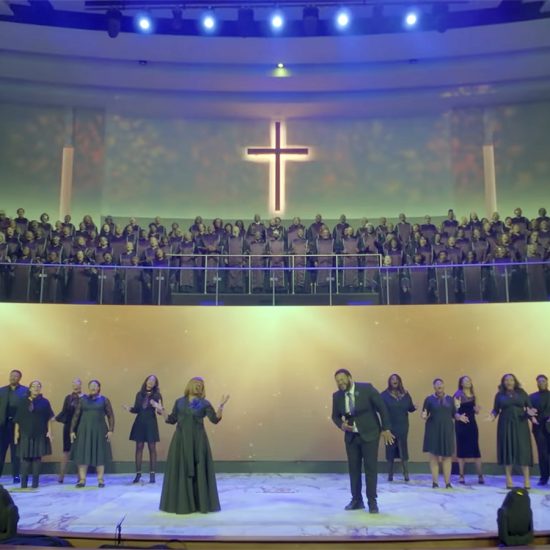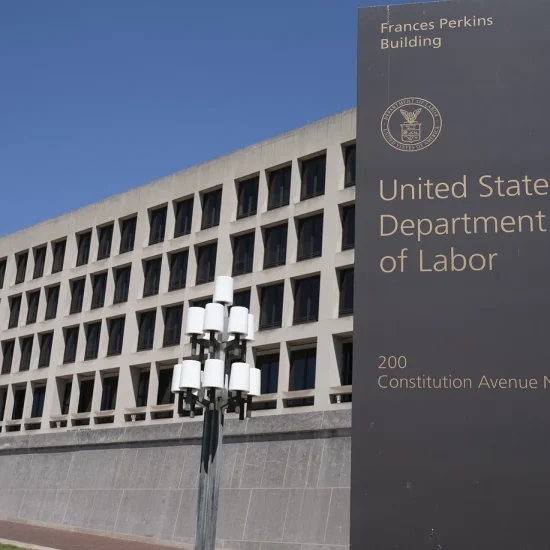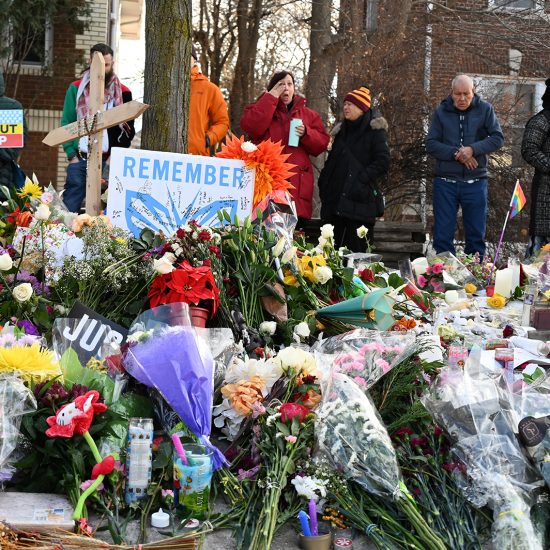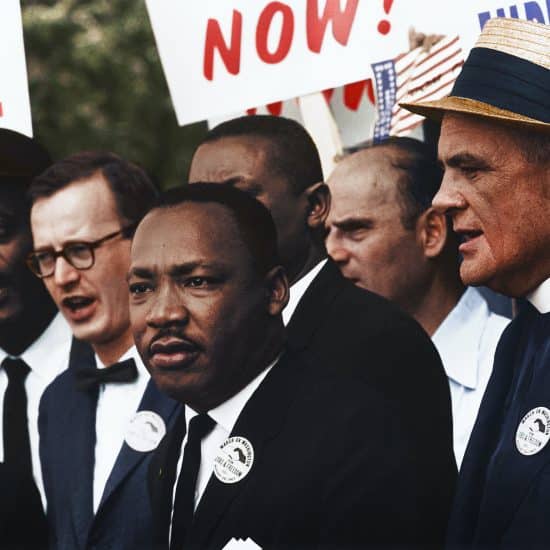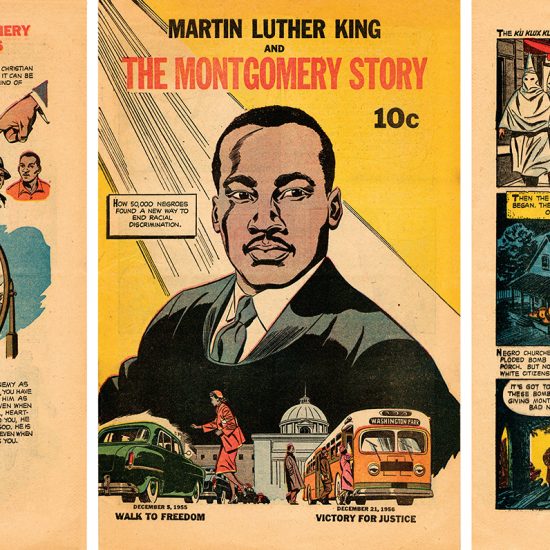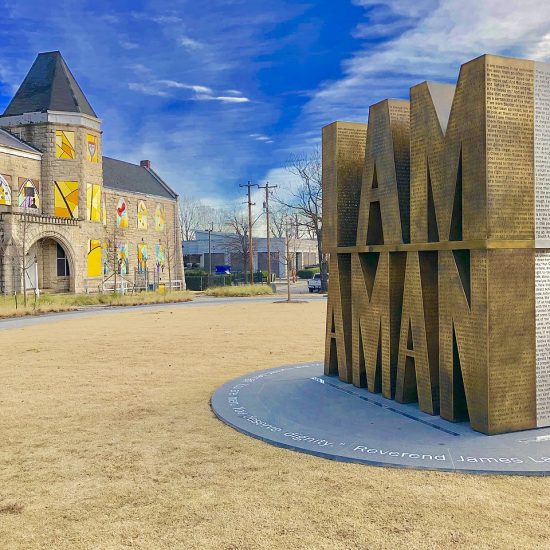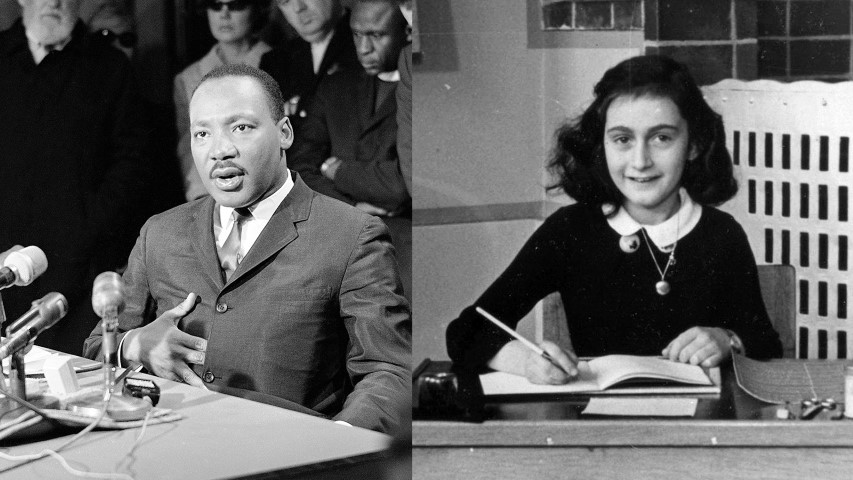
(RNS) — The Rev. Martin Luther King Jr. would have turned 90 on Jan. 15. What would he think of what we’ve done with his message of love and hope?
As we get ready to celebrate King’s birthday with a national holiday, we often hear him referred to as a black leader, or a Baptist leader. But that description is, in many ways, a reflection of our increasingly polarized world, where we try to separate people by race and faith. To truly appreciate how King changed the world, it’s important to step back and see him as a spiritual leader whose message transcended the particularities of any one religion.

The Rev. Martin Luther King Jr., left, in 1965. Anne Frank in 1940. (King photo via AP Photo; Frank photo via Creative Commons)
I’ve tried to do this in my own way by looking at King’s commonalities with a contemporary, Anne Frank. In a soon-to-be-published children’s book, “Martin & Anne: The Kindred Spirits of Dr. Martin Luther King, Jr. and Anne Frank,” I tell the parallel journeys of these two, born in the same year, 1929. It was the start of the Great Depression, and in the world they came to know, people were out of work, hungry and looking for someone to blame.
As happens all too often when people are frightened, the blame was fixed on vulnerable minorities. In America, black people endured lynchings, official segregation and a near-constant undercurrent of terror. King was only 39 when he was killed in 1968, standing on a balcony at a hotel in Memphis, Tenn.
In Europe, more than 6 million Jews would be murdered in the Holocaust. Among them: Anne, a 15-year-old who had dreamed of being a famous writer, only to die, sick and starved, in the Bergen-Belsen concentration camp in Germany.
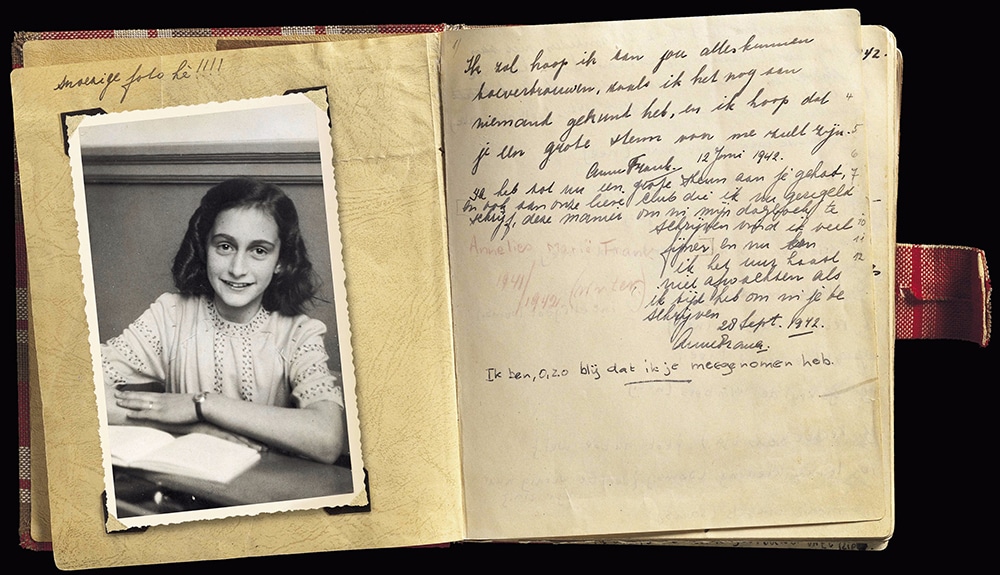
The diary of Anne Frank from Sept. 28, 1942. Photo courtesy of Creative Commons
By weaving between these two people of different genders, religions, races, countries and languages, I hope children will see that prejudice is always wrong and that these two people who met hate with love left us with words, spoken and written, that shine a light on a way forward to healing the world.
A fellow children’s book author, Sarah Aronson, has lived the connections between the Jewish and Baptist communities in a profound way that crosses generations. Before she was born, her grandfather, Joseph Klein, was a rabbi in Worcester, Mass., who invited King to his synagogue to address the congregation and answer questions. (Audio of King’s address is here.)
Years later, Aronson’s son, as a high school senior in Evanston, Ill., took part in a program in which he and others from his synagogue joined with teens from a Baptist church to visit civil rights sites, including the balcony where King was shot, now part of the National Civil Rights Museum, as well as each other’s houses of worship.
“It was life-changing,” Aronson says of her son’s experience. “They stood in each other’s shoes.”
Aronson feels her grandfather, the rabbi, and King, the Baptist minister, were of one mind and heart on the concept of tikkun olam, the Hebrew words that refer to healing the world. “What Dr. King did was meld the righteousness of faith and equality with repairing the world,” she said. “He had the faith of God in him and my grandfather did as well.”
Her grandfather is no longer living, but she sees that melding continuing with her son, now 24, and the friends he made on his high school journey.
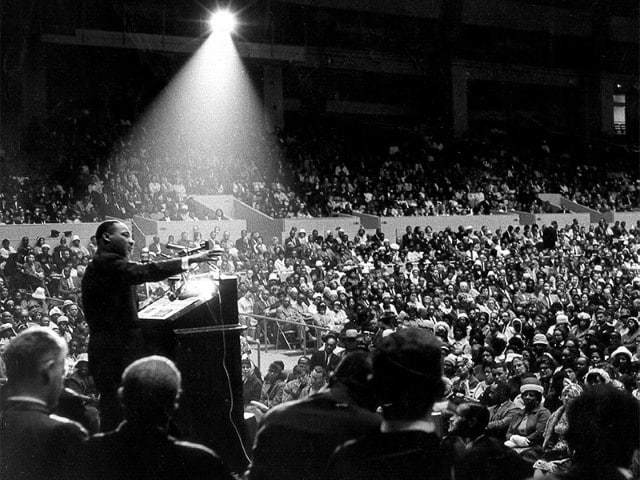
The Rev. Martin Luther King Jr. speaks at an interfaith civil rights rally at the Cow Palace in San Francisco on June 30, 1964. Photo by George Conklin/Creative Commons
As we approach the 51st anniversary of King’s death on April 4, our direct memory of his voice and presence inevitably fades. But his legacy lives on every time people break through what can divide us – gender, religion, race, language, country. His spirit lives through our efforts to work together, across our common humanity, to repair the world.
Religious leaders can help by reaching across divides as Aronson’s grandfather and King did and, later, as her son’s rabbi and a Baptist minister did. Books can do that, too — help us walk in each other’s shoes wherever we are, in a library, school, home or house of worship.
That is what I believe the Rev. Martin Luther King Jr. and Anne Frank, two great souls who never lost their faith in love and humanity, would have wanted us to do.

